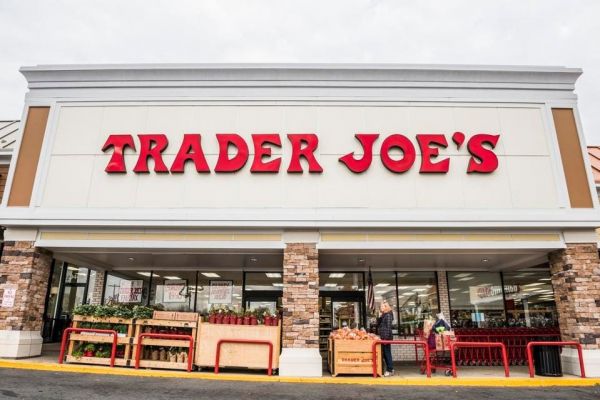Trader Joe’s is an iconic American chain of grocery stores that has captivated the hearts of millions of customers since its inception. With its unique product offerings and commitment to quality, Trader Joe’s has become a beloved fixture in the grocery industry. But who exactly owns Trader Joe’s and how did it come to be? Let’s delve into the fascinating history of this popular brand.
Trader Joe’s traces its roots back to 1958 when it was founded as Pronto Markets by visionary entrepreneur Joe Coulombe. However, it wasn’t until 1967 that the first Trader Joe’s store opened in Pasadena, California. From the beginning, Trader Joe’s set itself apart by offering customers a diverse and ever-changing selection of unique and exotic food items.
In 1979, Trader Joe’s underwent a significant change in ownership when it was acquired by the renowned Aldi founder, Theo Albrecht. This move played a pivotal role in shaping the future of Trader Joe’s, as Albrecht’s expertise and vision propelled the brand to new heights. Today, Trader Joe’s is owned by the family of Theo Albrecht, who passed away in 2010, but their commitment to the company’s values and legacy remains unwavering.
Since its early days, Trader Joe’s has experienced remarkable growth, expanding its footprint to over 564 stores across the United States. The company’s success can be attributed to its dedication to providing customers with high-quality private-label staple foods, organic offerings, and an array of specialty products.
Key Takeaways:
Page Contents
- Trader Joe’s was founded in 1958 as Pronto Markets and later became known as Trader Joe’s.
- The company was sold to Theo Albrecht, the founder of Aldi, in 1979.
- Trader Joe’s is currently owned by Theo Albrecht’s family, who continue to uphold the company’s values.
- Trader Joe’s offers a wide range of private-label, organic, and specialty products.
- The brand has over 564 stores across the United States, with a commitment to providing a unique and enjoyable shopping experience.
The History of Trader Joe’s
Trader Joe’s, originally founded as Pronto Markets in 1958 by Joe Coulombe, has a fascinating history that has made it the well-known grocery chain it is today. The first store under Trader Joe’s name opened in Pasadena, California in 1967, marking a significant milestone for the company.
Initially, Trader Joe’s aimed to cater to well-educated and well-traveled customers by offering unique and exotic food items. The brand quickly gained popularity, allowing the company to expand its inventory and diversify its product range.
Trader Joe’s became renowned for its private label offerings, which include a wide variety of staple foods, organic products, and specialty items. With a focus on high-quality and affordable products, Trader Joe’s has garnered a loyal customer base across the United States.
In 1979, Trader Joe’s underwent a significant change in ownership. It was sold to Theo Albrecht, the founder of Aldi, who took on the responsibility of further growing the brand. Under Albrecht’s guidance, Trader Joe’s continued to flourish and expand its presence throughout the country.
Today, Trader Joe’s stands as a well-established grocery chain with a rich history. With over 564 stores spread across 42 states, the company continues to offer a personalized shopping experience and a diverse range of unique and innovative products.
| Year | Milestone |
|---|---|
| 1958 | Pronto Markets founded by Joe Coulombe |
| 1967 | The first store under the Trader Joe’s name opens in Pasadena, California |
| 1979 | Trader Joe’s sold to Aldi founder Theo Albrecht |
| Present | Trader Joe’s has over 564 stores nationwide |
Ownership of Trader Joe’s
Trader Joe’s, a beloved American grocery chain, is currently owned by the family of Theo Albrecht. Theo Albrecht, the founder of Aldi, purchased Trader Joe’s in 1979 and led the company until his passing in 2010. Since then, ownership has been transferred to his heirs, who diligently oversee the operations and uphold the core values and vision of Trader Joe’s.
Throughout its history, Trader Joe’s has remained true to its commitment to providing unique and high-quality products to its customers. Under the ownership of the Albrecht family, the company has continued to flourish, gaining widespread recognition and popularity across the United States.
Theo Albrecht’s family has played a pivotal role in preserving the essence of Trader Joe’s as a distinct and cherished grocery chain. Their dedication has ensured the continued success and growth of Trader Joe’s, allowing it to thrive as a go-to destination for customers seeking exceptional and affordable products.
Trader Joe’s Ownership History:
- Founded by Trader Joe’s founder Joe Coulombe
- Purchased by Theo Albrecht in 1979
- Ownership transferred to Albrecht’s heirs upon his death in 2010
Under the stewardship of the Albrecht family, Trader Joe’s has remained true to its origins while adapting to the ever-changing market landscape. With a rich ownership history and a steadfast commitment to providing unique and high-quality offerings, Trader Joe’s continues to delight customers and stand as a beloved household name in the grocery industry.
Leadership at Trader Joe’s
Joe Coulombe, the founder of Trader Joe’s, established the company in 1958 and played a key role in shaping its unique identity and business model. Coulombe’s vision and dedication to providing customers with high-quality products at affordable prices laid the foundation for Trader Joe’s success.
After selling the company to Theo Albrecht in 1979, Coulombe remained actively involved in the business and guided the new leadership team. His expertise and experience continued to influence the direction of Trader Joe’s, ensuring the preservation of its core values.
Today, Trader Joe’s is led by Bryan Palbaum, who serves as the Chairman and CEO of the company. Palbaum brings a wealth of experience in the retail industry and is committed to upholding the legacy and principles set forth by Coulombe and Albrecht.
Trader Joe’s Locations
Trader Joe’s has an extensive presence across the United States, with over 564 stores. These stores are spread throughout 42 states, making it convenient for customers to find a Trader Joe’s location near them. One of the states with the largest number of Trader Joe’s stores is California, where the brand originated. The number of stores in each state varies, ensuring that Trader Joe’s can cater to a wide range of customers throughout the country.
Each Trader Joe’s location is designed to reflect the unique characteristics of its respective area. Staff members take pride in creating murals that represent the surrounding neighborhood and contribute to the store’s welcoming atmosphere. These murals add a touch of local charm and provide customers with an engaging shopping experience.
The size of Trader Joe’s stores typically ranges from 10,000 to 15,000 square feet. This size allows for a carefully curated selection of products, ensuring that each store offers a diverse range of staple foods, organic options, and specialty products. Despite the compact size, Trader Joe’s is well-known for its ability to provide customers with a wide variety of high-quality and unique items.
Trader Joe’s Store Locations by State
| State | Number of Stores |
|---|---|
| California | 182 |
| New York | 25 |
| Texas | 25 |
| Florida | 19 |
| Illinois | 18 |
| Massachusetts | 16 |
| Pennsylvania | 15 |
| New Jersey | 14 |
| Washington | 14 |
| Virginia | 12 |
| Oregon | 11 |
The table above provides an overview of the number of Trader Joe’s stores in some of the most popular states. These numbers are just a snapshot, and the total number of stores can always change as Trader Joe’s continues to expand its presence. Whether you’re in a large city or a smaller town, there’s a good chance you’ll find a Trader Joe’s location nearby, ready to provide you with a unique and enjoyable grocery shopping experience.
Trader Joe’s Product Offerings
Trader Joe’s offers a wide range of products, including private-label staple foods, organic foods, and specialty products. The company is known for its unique and innovative offerings, with approximately 80% of its products bearing one of its brand names.
Trader Joe’s prides itself on providing high-quality options at affordable prices, making it a popular choice for shoppers looking for value without compromising on taste or quality.
Gourmet Foods
Trader Joe’s offers a selection of gourmet foods that cater to different tastes and preferences. From artisanal cheeses and charcuterie to handcrafted chocolates and decadent desserts, the gourmet section is a haven for food enthusiasts seeking culinary delights.
Frozen Meals
For those looking for convenient meal options, Trader Joe’s has a wide range of frozen meals that are quick and easy to prepare. From appetizers and entrees to side dishes and desserts, the frozen section offers something for everyone.
Wine and Beer
Trader Joe’s boasts a diverse selection of imported and domestic wine and beer, where local laws permit. With an emphasis on value and quality, customers can explore a variety of options to suit their taste preferences and budgets.
Vegetarian and Vegan Options
Trader Joe’s recognizes the growing demand for vegetarian and vegan products. The store offers a dedicated section of plant-based options, including meat alternatives, dairy-free products, and a wide assortment of fresh produce.
Other Food Items
In addition to its extensive product offerings, Trader Joe’s also stocks a variety of pantry staples, fresh produce, snacks, spices, and international foods. The store’s shelves are filled with an array of items that cater to diverse dietary needs and preferences.
Working with Local and International Vendors
To ensure the highest quality and the best variety, Trader Joe’s works closely with local and international vendors. The company prides itself on building strong relationships with suppliers who share its commitment to providing customers with exceptional products. By sourcing from a diverse range of vendors, Trader Joe’s offers unique and culturally diverse products on its shelves.
Trader Joe’s Contribution to the Grocery Industry
Trader Joe’s has had a significant impact on the grocery industry through its unique business model and product offerings. With a focus on private-label products and a commitment to providing high-quality and affordable options, Trader Joe’s has distinguished itself from traditional supermarkets.
The company’s innovative approach to grocery shopping has resonated with consumers and allowed them to tap into emerging trends in the market. By offering a wide array of specialty and unique products, Trader Joe’s has created a shopping experience that goes beyond the ordinary trip to the grocery store.
Trader Joe’s success has not gone unnoticed in the industry. Other grocery chains have taken note and followed suit by introducing their private label lines and incorporating unique product offerings. This shift in the market can be attributed to Trader Joe’s influence, which has shown that there is a demand for high-quality, affordable, and unique options.
To truly understand the impact of Trader Joe’s, let’s take a look at a comparison between their private label offerings and traditional supermarket brands:
| Trader Joe’s | Traditional Supermarket | |
|---|---|---|
| Product Quality | High-quality ingredients sourced from reputable suppliers | Varies; some brands may prioritize cost over quality |
| Affordability | Competitive pricing for premium products | Prices may be higher due to branding and distribution costs |
| Selection | Specialty and unique products not easily found elsewhere | Wide range of mainstream options |
| Consumer Appeal | Caters to diverse palates with a focus on trends | May not always keep up with emerging tastes and preferences |
This table highlights the distinctive qualities that make Trader Joe’s private label products stand out in the grocery industry. By consistently delivering high-quality, affordable, and unique offerings, Trader Joe’s has successfully carved out a niche in the market and influenced the direction of the industry as a whole.
Trader Joe’s and the Community
Trader Joe’s is more than just a grocery store; it’s a community hub that fosters a sense of belonging and connection. The company prides itself on being a neighborhood store that deeply values its customers and the communities it serves.
At Trader Joe’s, creating a welcoming and friendly environment is a top priority. From the moment you step inside, you’re greeted with a warm smile and helpful staff who are dedicated to providing a positive shopping experience. Whether it’s answering questions, offering recommendations, or simply engaging in friendly conversation, the Trader Joe’s team goes above and beyond to make you feel at home.
Embracing the Neighborhood
One of the unique aspects of Trader Joe’s locations is the incorporation of neighborhood-inspired murals. These vibrant artworks reflect the local culture, landmarks, and community spirit, serving as a visual celebration of the surrounding area. These murals not only add character to the store but also create a sense of pride and belonging for both customers and residents.
Engaging with the Community
Trader Joe’s actively participates in local events and collaborates with nearby organizations to support the community. Whether it’s sponsoring neighborhood fairs, food drives, or educational programs, the company values its role as a community partner and seeks to make a positive impact beyond the walls of the store. By actively engaging with the community, Trader Joe’s demonstrates its commitment to fostering relationships and building lasting connections.
A Neighborhood Store with Heart
Trader Joe’s goes beyond being a place to buy groceries; it’s a gathering place for friends and neighbors. The company understands the importance of social connections and the role it plays in creating a strong and vibrant community. Whether it’s chatting with fellow shoppers in the aisles or sharing a recipe recommendation at the checkout, Trader Joe’s encourages a sense of camaraderie and community, making each visit a delightful experience.
Trader Joe’s truly embodies the spirit of a neighborhood store. Its commitment to creating a welcoming environment, embracing the neighborhood through murals, and actively engaging with the community sets it apart as a grocery store that values more than just sales. Trader Joe’s is a place where people come together, forge connections, and create lasting memories.
Trader Joe’s and Sustainability
Trader Joe’s is committed to sustainability and eco-friendly practices. The company recognizes its responsibility in protecting the environment and actively works towards minimizing its environmental impact.
Sourcing Products Responsibly: Trader Joe’s prioritizes sourcing products that adhere to sustainable practices. The company partners with local and international vendors who share its commitment to environmental responsibility. By sourcing responsibly, Trader Joe’s aims to support sustainable agriculture, reduce deforestation, and promote fair labor practices.
Minimizing Packaging Waste: To reduce waste, Trader Joe’s focuses on minimizing packaging materials. The company encourages the use of reusable bags by providing incentives to customers who bring their bags and offers paper bags as an alternative to plastic. Trader Joe’s also works with suppliers to minimize excessive packaging and reduce unnecessary waste.
Promoting Recycling: Trader Joe’s actively promotes recycling by providing recycling bins in its stores and ensuring proper waste management practices. The company encourages customers to recycle packaging materials such as paper, plastic, and glass to reduce landfill waste.
Sustainable and Organic Options: Trader Joe’s offers a wide variety of sustainable and organic products to cater to the growing demand for eco-friendly options. The company prioritizes products with certifications such as organic, Fair Trade, and Rainforest Alliance, ensuring that customers have access to environmentally conscious choices.
Constant Improvement: Trader Joe’s is committed to regularly reviewing and improving its sustainability practices. The company actively seeks feedback from customers and employees to identify areas for enhancement and implement changes accordingly. By continuously striving for improvement, Trader Joe’s aims to stay at the forefront of eco-friendly practices in the grocery industry.
Trader Joe’s Sustainability Efforts
| Sustainability Initiatives | Impact |
|---|---|
| Sourcing Local and Organic Products | Reduces carbon footprint, supports local farmers, and promotes organic agriculture |
| Waste Minimization | Reduces packaging waste and landfill contribution |
| Promotion of Recycling | Encourages responsible disposal of packaging materials and reduces resource consumption |
| Partnerships with Sustainable Suppliers | Supports ethical and sustainable practices throughout the supply chain |
| Continual Improvement | Ensures ongoing enhancement of sustainability efforts based on feedback and industry advancements |
Trader Joe’s Future Outlook
Trader Joe’s, the beloved grocery chain, has had a remarkable journey of growth and success, and its future holds great promise. As the company continues to expand, it is opening new stores in various locations across the United States. This expansion strategy demonstrates Trader Joe’s commitment to reaching more customers and providing them with its unique shopping experience.
Looking ahead, Trader Joe’s is poised to thrive by staying true to its core values while constantly adapting to meet the evolving needs and preferences of its customers. With its innovative approach to product offerings, Trader Joe’s is expected to introduce new and exciting items that cater to emerging trends in the market. This commitment to innovation ensures that shoppers will always find something fresh and appealing on the shelves.
One of the key factors contributing to Trader Joe’s future growth is its strong brand identity and loyal customer base. The company has cultivated a dedicated following of shoppers who appreciate its quality, affordability, and unique selection. Trader Joe’s has created a shopping experience that goes beyond just buying groceries—it has become a part of the community, offering a warm and friendly atmosphere that fosters a sense of belonging.
With its unwavering commitment to sustainability and eco-friendly practices, Trader Joe’s is also well-positioned to thrive in an increasingly conscious consumer market. The company’s dedication to responsible sourcing, packaging waste reduction, and recycling aligns with the values of its customers and contributes to its reputation as a socially conscious grocery chain.
Also Read, Kaylin Wiley, Averie Gilley, and Sophierosejm.





